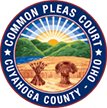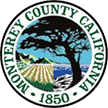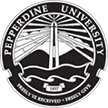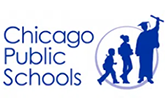Cal Interpreting & Translations (CIT) offers Cornish interpreters and translators with legal, medical and specialty experience, including criminal and civil matters, employee meetings, engineering, patent cases, labor disputes, immigration and more.
Although based in Los Angeles, CIT offers comprehensive Cornish language services including interpretation, translation and transcription, 24 hours a day, 7 days a week, worldwide. Our interpreters and translators are native speakers who have been screened, certified, have provided credentials, field tested, and kept up to date with developments in both English and the Cornish language through means such as lectures, conferences, and travel. CIT’s Cornish language interpreters and translators possess in depth knowledge of the Cornish language, as well as of the culture and history of the Cornish people, allowing them to provide informed and complete interpretation and translation.
The Cornish language, also known as Kernewek, is spoken primarily in Cornwall (Kernow). It is a Celtic language and a member of the Brythonic (British) branch of the Celtic languages, along with Welsh and Breton.
About 3,000 people speak Cornish, with only 2/3 of those being fluent in it. The language is linguistically affiliated with Indo-European, Insular Celtic, Brittonic and Southwestern languages.
The name “Cornwall” comes from the words “Cornovii” and “Waeles,” which means “hill dwellers and strangers.” Towards the end of the 7th century, Cornish began to shy away from the Welsh language. Around this time are also the earliest examples of written Cornish. From about 800-1250, Old Cornish was used and traced back from Cornwall.
Literature in Late or Modern Cornish, which was used between the 16th and 19th centuries, included folk, poems, songs and a translated version of the Bible. It was at the end of the 19th century that Cornish was no longer spoken every day. The last native speaker was probably John Davey from Zennor who dies in 1891.
Not long after, Henry Jenner, who lived from 1848 – 1934, tried to revive Cornish. He traveled all over Cornwall, interviewed Cornish speakers and studied Cornish text. In 1904, he published a book titled The Handbook of the Cornish Language. This was designed to be an introductory textbook to the languages. His work was then continued by Robert Morton Nance, who published a book called Cornish for All in 1929.
In the 1960s, the Cornish Language Board set up the language in order to promote it and revive it. Their version of the language was Unified Cornish. The newest version of Cornish was developed by Dr. Ken George, which is now called Common Cornish. In 1995, Nicholas Williams developed a newer version of the language, called Unified Cornish Revised (UCR).
There are still many families in Cornwall attempting to keep the language alive. Children, pets, houses and boats are often given Cornish names. Additionally, new poetry and music is being written in Cornish along with several magazines and publications that are being printed in the languages.


No matter what your needs may be, we can and are ready to assist you now. We have translators and interpreters standing by 24/7.

CIT's interpreter is such a rockstar, and it’s so great to have him as a lead interpreter for our Board meetings. About Our Interpreters 
Thank you for always being able to handle emergency interpreting assignments with ease. About Urgent Requests 
Thank you for always being able to handle emergency interpreting assignments with ease. About Urgent Requests 
Your translation rates are more competitive than other language service providers I used in the past. About Pricing 

Professionalism matters at CIT. We respond to request inside 24 hours.







